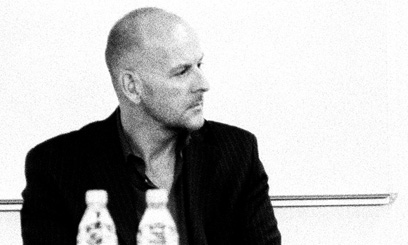The New York Times Gets Philosophical

The New York Times has introduced a new blog, on philosophy. It’s called Stone. The first piece/post is written by the very elegant and, philosophically, compelling Simon Critchley, and addresses the basic question—not, “what is philosophy,” but rather, “what is a philosopher?” Why is the Times putting time to this now? In any event, what might come of it? We enjoy Critchely’s musings, and we enjoy the idea that philosophy has been fore-fronted, so to speak, alongside more quotidian (yet in some ways no less philosophical) questions of Work Life Balance Question and Style.
Here is how the Times introduces the series:
Even before Thales fell into the well, and the ancient Greeks laid the foundation for Western philosophy, humans were engaged in the search for wisdom — a deeper understanding of their world, the universe and their own minds. Despite the rapid changes to our society and daily life, that pursuit continues. But what does philosophy look like today? Who are philosophers, what are their concerns and what role do they play in the 21st century?
The Stone is a new opinion series that will feature the writings of contemporary philosophers on issues both timely and timeless — art, war, ethics, gender, popular culture and more.
The series moderator is Simon Critchley, chair of philosophy at The New School for Social Research in New York, who introduces The Stone tonight with an examination of the question, What Is a Philosopher? In coming weeks, The Stone will include contributions from a rotating group of philosophers, including Nancy Bauer, Jay Bernstein, Arthur C. Danto, Todd May, Nancy Sherman, Peter Singer and others.
What is a Philosopher, the question, is a pretty potent starting point, and while today’s recipe might include a proper PhD and a long series of arcane academic articles, it is likely that as media evolves, and culture evolves, the definition of what a philosopher is will be what connects us to like-minded souls. Some will still choose Socrates. Others, Oprah. Or Byron Katie. We cannot divine the best metrics from our vantage point, but we can know that more and more people seek someone to tell them “The Secret,” and fewer and fewer are reading—off-campus—the complete works of Kant, Aristotle, or Walter Benjamin.Perhaps Stone will address this imbalance.




